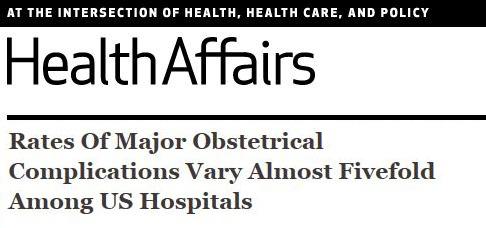Study: Expectant Mothers Would Benefit from National Quality Standards

Whether or not you experience complications during childbirth may depend upon the hospital you choose, according to a University of Rochester Medical Center-led study published in the August issue of Health Affairs. The study revealed that while 13 percent of all women in the U.S. experience obstetrical complications, the rates can vary as much as five-fold among hospitals.
An article published in the University of Rochester Medical Center online newsroom reported that lacerations, hemorrhage, clots or infections occurred in 21 percent of cesarean deliveries at low-performing hospitals compared to just 4.4 percent at high-performing hospitals. Women who delivered vaginally were twice as likely to suffer complications at low-performing hospitals.
“The key finding is that there is a significant variability in maternal outcomes across U.S. hospitals,” said lead author Laurent G. Glance, M.D. “This presents us with an opportunity to identify ‘best practices’ at hospitals with low rates of maternal complications in order to improve outcomes for patients in all hospitals.”
The researchers called for a national quality reporting system. The American Congress of Obstetricians and Gynecologists (ACOG) and the American Society of Anesthesiologists have launched such an initiative to measure and report maternal outcomes.
As experienced Philadelphia birth injury attorneys, we know that there are many factors that can contribute to complications during childbirth, including the mother’s health, the position of the baby, and the timing of the delivery (if the baby is late or premature). We applaud the pursuit of national quality standards that will help hospitals to follow best practices, so long as the data is made available to consumers.
To read the University of Rochester’s report on the study and article, visit: http://www.urmc.rochester.edu/news/story/index.cfm?id=4126

